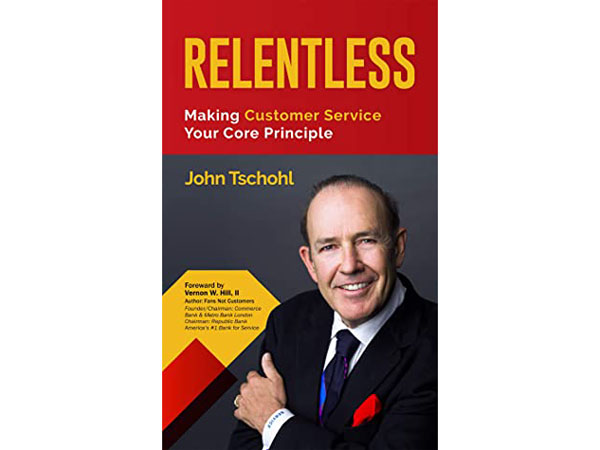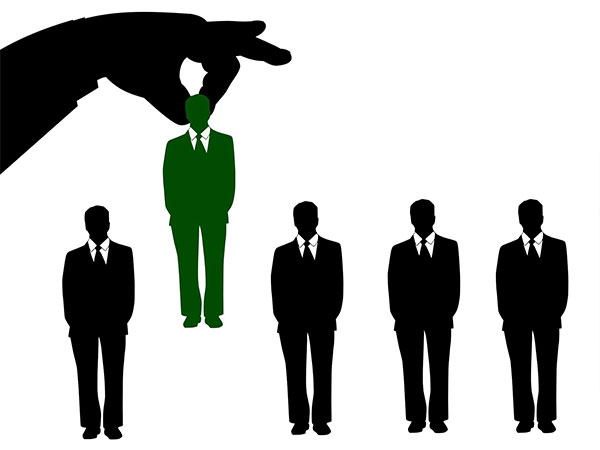Industry Talk - Free Talk
RELENTLESS ROLE MODELS by John Tschohl
September 28, 2021
.jpg) Advertisement
AdvertisementJohn Tschohl has two rules for companies that want to provide exceptional service:
Rule 1: Serve the customer. Rule 2: When in doubt, see rule number 1.
Tschohl, who founded the Service Quality Institute more than 40 years ago, has written several books on customer service, and has clients throughout the world. In his latest book, “Relentless,” he focuses on being relentless serving customers.
“Being relentless means providing exceptional service to your customers,” he says. “It’s a propulsive, self-directed passion to continue to learn, improve, and exceed expectations in everything you do. It’s a race without a finish line. It’s a reflection of the core principles, beliefs, and attitudes of people within healthy and hugely successful businesses.”
Tschohl cites three companies that are reaping the benefits of being relentless in serving their customers. Those businesses, he says, should serve as role models for companies that want to ensure the success—and growth—of their organizations.
Topping the list is Amazon. Founded by Jeff Bezos in 1995, its sales in 2020 were a staggering $386 billion, a 38 percent increase—which translates to $1.5 billion—over the previous year. What accounts for Amazon’s extraordinary success?
“Amazon is relentless in providing its customers with service that goes far beyond that of other companies,” Tschohl says. “It combines great prices with speed and technology that makes it easy to make purchases and easy to make returns. It consistently practices every element of exceptional customer service.”
That commitment to customer service didn’t just happen. It the result of the leadership of Bezos, who has a net worth of $198.3 billion and who has an obsessive, compulsive focus on providing extraordinary service to the company’s customers. The success of Amazon’s commitment to customer service is apparent in the fact that the company’s stock continues to skyrocket.
The Mayo Clinic is another role model for customers who would like to be relentless in their customer service. Mayo is consistently ranked number one in the U.S. healthcare industry. In 2020, it had 1.3 million patients, a workforce of 71,400 that included 7,000 physicians and scientists, thousands of volunteers, revenues of $13.9 billion, and philanthropic contributions of $587 million.
“Those figures are beyond impressive and are a direct result of Mayo’s focus on its customers, in this case its patients,” Tschohl says. “Care at Mayo doesn’t cost any more than it does at other clinics, but Mayo does more than provide extraordinary health care. It does whatever it can to ensure that its patients and their families are comfortable and well care for, including making computers and free Wi-Fi, with no passwords required, available throughout its buildings. Mayo is the Ritz-Carlton of the healthcare industry while other clinics are the Motel 6s.”
Another role model that organizations would be well advised to imitate is Chewy.com, Tschohl says. It is the largest pet food company in the United States, if not the world, and is worth $31.67 billion. The company’s sales for the fiscal year ending July 2021 were $8.22 billion, a 37.42 percent increase over the previous year. It has more than 15,000 employees and partners with more than 2,000 of the best and most trusted brands in the pet industry. The company was founded in 2011 and was sold to PetSmart in 2017 for an estimated $3.35 billion. Co-founder Ryan Cohen describes himself as “obsessive, relentless, and contrarian.”
“The company’s goal,” Tschohl says, “is to be the most trusted and convenient online destination for pet parents. It has great prices, convenience, free shipping, speed, and great service recovery. It offers a 100 percent unconditional satisfaction guarantee on every order. If your dog doesn’t like the food you ordered, Chewy.com will give you a refund and tell you not to bother returning the product.”
Chewy.com also goes above and beyond in other ways. This year alone it sent out more than 5 million handwritten birthday cards to customers. Its staff includes artists who do oil paintings of customers’ pets and sends them out during the holidays.
“These three companies are relentless when it comes to customer service,” Tschohl says. “Being relentless means going above and beyond to ensure that your customers continue to do business with you and sing your praises to others. When you focus on the customer, the impact on your bottom line and long-term growth will be enormous.”



.jpg)








